Dr. Nitin Singhal
Neo Bladder Cancer
What is Neo Bladder Cancer?
“Neobladder” refers to a surgically created bladder made from a segment of the patient’s intestine after the removal of the urinary bladder, usually due to bladder cancer. This procedure allows urine to be stored and expelled normally, aiming to preserve as much natural urinary function as possible.
Neobladder reconstruction is not a type of cancer itself but a treatment option for patients with bladder cancer who require a cystectomy (bladder removal). It is generally considered for patients in good health who are suitable for major surgery. Post-surgery, patients may need guidance on urinary control, diet, and regular follow-ups to monitor for any cancer recurrence or complications.
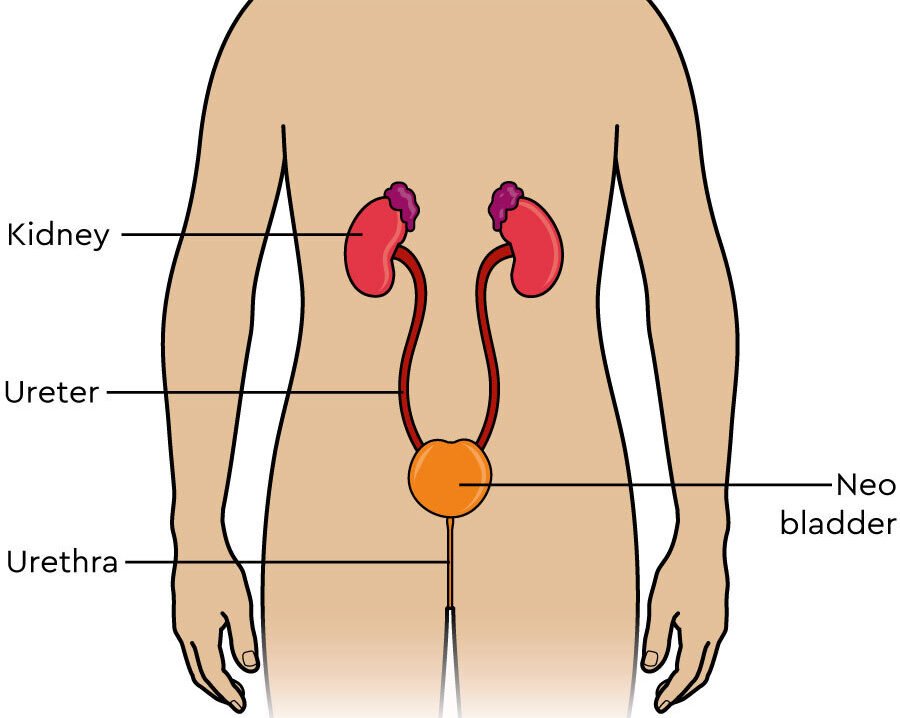
Happy Clients
Successful Surgeries
Patients Reviews Rate
Years of Experience
Types of Neo Bladder Cancer Surgery
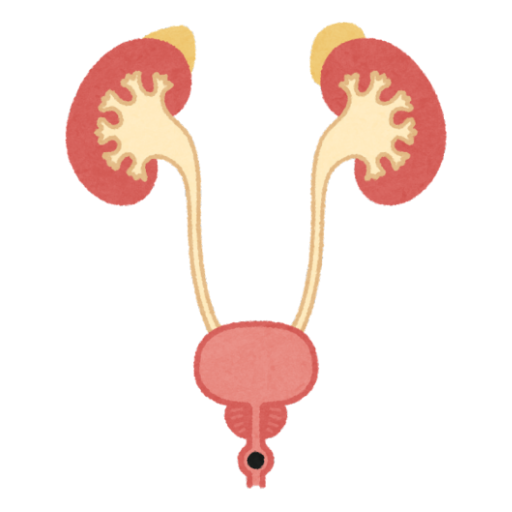
Orthotopic Neobladder Reconstruction
A new bladder is created from a segment of the intestine and connected to the urethra, allowing normal urination. It is suitable for patients who have their urethra intact and want to preserve natural voiding.
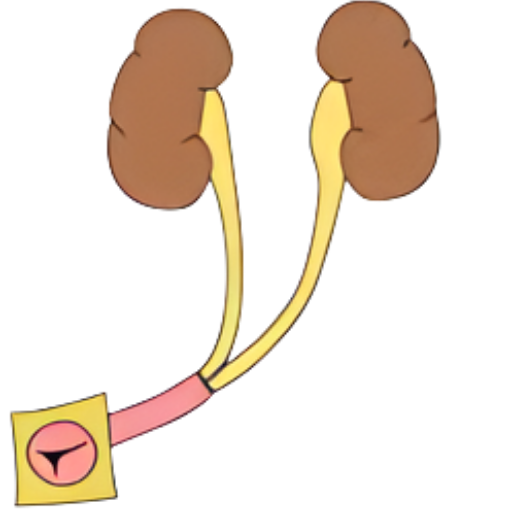
Ileal Conduit Urinary Diversion
A piece of the small intestine is used to divert urine to a stoma on the abdominal wall. Urine is collected in an external bag, typically used when the urethra cannot be preserved.
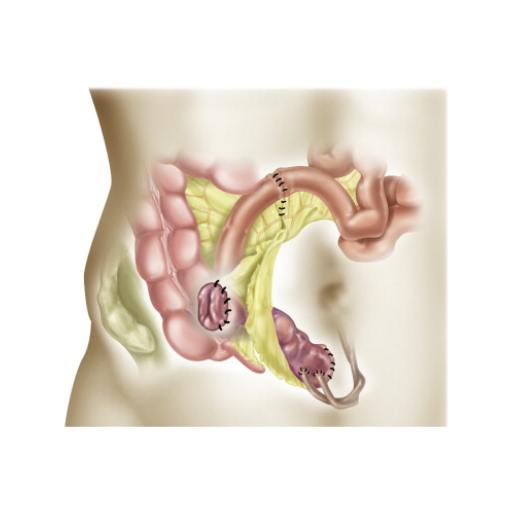
Continent Cutaneous Reservoir
A pouch is constructed from intestinal tissue and connected to a small abdominal opening with a valve. Patients can empty urine periodically using a catheter, eliminating the need for an external bag.
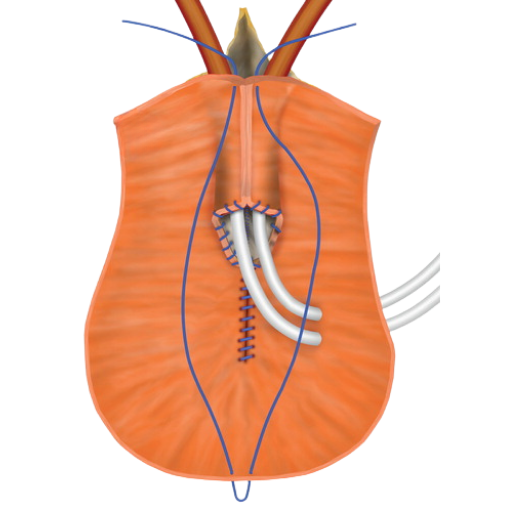
Studer Pouch Neobladder
Your Guide to Neo Bladder Cancer
A history of bladder cancer is the major risk factor for the patients of neoblasters since the surgery is typically carried out after cystectomy. Bladder cancer recurrence that can impact the health of neobladders can occur more frequently in persons who have smoked, patients with chronic inflammatory disease of the bladder, or those with pre-radiation histories.
The predisposition to urinary tract cancers can also be genetic, as well as a family history of cancers, leading to increased chances of complications. Pre- and post-operative care or follow-up is also another risk factor, as it can influence the functionality of the neobladder over the long run and early recurrence diagnosis.
Following a neobladder reconstruction, patients are likely to develop urinary incontinence, failure to empty the bladder, frequent urination, and/or urinary tract infection. These symptoms may occur in the early stages of the recovery process but may be sustained in case of inadequate management.
Abdominal pain, swelling and abnormal urine systems may be felt by some of the patients. Within an hour of the changes, it is necessary to conduct an immediate assessment of the changes; it might be a sign of such complications as strictures, infection, or uncommon relapse of cancer in the urinary tract.
The aftercare in neobladder surgery is aimed at sustaining the urinary flow and checking the cancer recurrence. This involves the training of catheterisation, anti-infection drugs, eating plans and frequent follow-up of imaging and laboratory studies.
In case of reoccurring cancer or development of complications, additional treatment can be necessary, like surgical amendments, chemotherapy, or immunotherapy. Patient education and rehabilitation can assist someone to live with a neobladder and maximise the quality of life.
Why Choose Dr Nitin Singhal For Neo Bladder Cancer Surgery?
Dr. Nitin Singhal is a renowned Neo Bladder Cancer Surgery with 15+ years of experience and 5,000+ successful surgeries. He provides expert care in cancers including gastrointestinal, gynecological, thoracic, and urological, with special focus on kidney and bladder cancers.

Expertise
He specializes in orthotopic neobladder, Studer pouch, ileal conduit, and continent cutaneous reservoir surgeries. His precision ensures optimal urinary function while minimizing complications.
Infrastructure
Dr Nitin Singhal operates in hospitals with advanced robotic systems, imaging technology, and modern ICUs. A dedicated oncology team supports patients through every step from diagnosis to recovery.
Technology
Using robotic-assisted surgery, he achieves minimal blood loss, faster recovery, and precise neobladder reconstruction. The focus is on organ preservation, functional outcomes, and careful preoperative planning.
Benefits of Neo Bladder Cancer Surgery?

Faster Recovery Time

Low Risk of Infection

Lesser Scars

Less Discomfort After Surgery

Shorter Hospital Stay

Speedier Return to Daily Life
Commonly Asked Questions
What is neo bladder surgery?
Neobladder surgery is a procedure in which a new bladder is constructed from a segment of the intestine after removal of the urinary bladder, usually due to bladder cancer. It allows patients to store and pass urine normally through the urethra.
How successful is neobladder surgery?
The surgery is highly successful in restoring urinary function for suitable patients, especially when performed by experienced surgeons. Success depends on factors like patient health, cancer stage, and proper post-operative care.
What is the survival rate of neobladder patients?
Survival rates vary based on cancer stage at surgery and overall health, but early-stage patients typically have high long-term survival. Regular follow-ups help detect recurrence early, improving outcomes.
What is the life expectancy after having your bladder removed?
Life expectancy after bladder removal depends largely on cancer stage, treatment, and general health. With timely surgery, proper follow-up, and rehabilitation, many patients lead long, healthy, and active lives.
Get In Touch!
We provide a 24*7 emergency care
If you have any kind of robotic cancer surgery-related medical emergency, visit Sterling Hospital. An expert doctor is always available & treatment will be provided at once.
